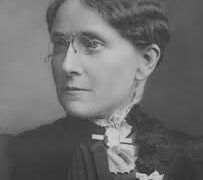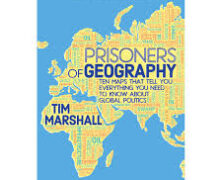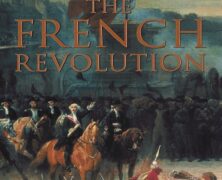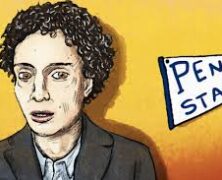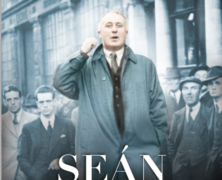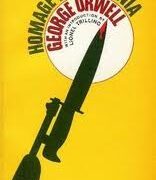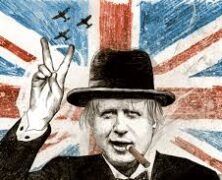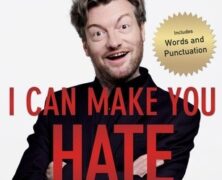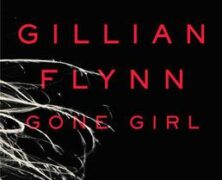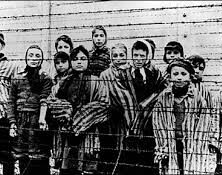Frances E. Willard is little known now; I only came across her myself recently and only today did I read her wonderful piece of prose about the bicycle called “A Wheel within a Wheel: How I Learned to Ride the Bicycle.” Who knew that the bike was a political as well as a leisure pursuit? Willard recounts how she was free and wild and able to grow stuff in her garden and follow “the occupations of the poulterer and the farmer ” because of her “inveterate opposition to staying in the house.” She was what we might call nowadays a “tomboy,” a term which I suspect is no longer politically correct. But everything changed for at the age of sixteen at which point she was entrusted with becoming a young lady: “the hampering long skirts were brought, with their accompanying corset and high heels; my hair was clubbed up with pins,” she had, in other words, to “cop on” probably so that she could find a husband. “My work then changed from my beloved and breezy outdoor world to the indoor realm of study.” Enter the bicycle! Cycling wasn’t entirely new to her at the age of fifty-three, a time when she was without her mother who’d died and was feeling that her “mental and physical life were out of balance.” She had tested out tricycles – the ones with three wheels – which women were more suited to, presumably because it was near impossible to fall off them. One fascinating reflection on the bicycle is that it was the means by which people who could never afford either the danger or the cost of a horse could nonetheless experience through “this bright invention […] the swiftness of motion which is perhaps the most...
“Use wore off the glamour of traditions:” “A Wheel within a Wheel” by Frances E. Willard...
posted by Cloud
Prisoners of Geography by Tim Marshall...
posted by Cloud
The full title of this wonderfully informative and sympathetically written jewel is Prisoners of Geography: Ten maps that tell you everything you need to know about global politics. Tim Marshall has a list of credentials the length of his driveway: his blog, for instance, Foreign Matters, won the Orwell Prize in 2010. I like Tim Marshall because he writes like a genuine teacher; he wants you to get it and so used simple language and clear reasoning. In fewer than thirty pages he explains why Vladimir Putin appears to many Europeans to be aggressive, war-like, a sabre-rattler, a Cold Warrior as it were and why such an impression might be said to be simplistic. It’s mostly about geography with a generous smattering of history. Marshall reminds us that geopolitics haven’t gone away, even in this, our 21st century. Russia, he won’t let us forget, is “vastest.” However, it’s mostly snow. The Western end is where all the action is it seems. Some of the story I already knew. The end of the Second World War saw Russia occupy most of what Germany had taken during the war but soon enough NATO put paid to any especially grandiose designs The Bear had on Europe. Even its answering military fraternity, The Warsaw Pact, broke apart and most of it members joined NATO. Putin laments the subsequent break-up of the USSR and blames Gorbachev for weakening Russia. Russia has genuine national security concerns in Ukraine because of the behaviour of NATO and the EU. But while no power would ever consider invading Russia unless it deemed it utterly necessary due to all that size and snow, there are several ways to skin a bear. The EU, for instance, is actively trying to decrease its reliance on Russian gas...
The French Revolution by Christopher Hibbert...
posted by Cloud
Recent events in France ensure that that country remains an important focal point for anyone interested in world affairs. Many of us perhaps fall into the trap of believing that terrorism is a recent phenomenon; it certainly isn’t. The French themselves have been masters of it, in France itself, in Africa (Algeria is a notable example) and elsewhere. The tragic and brutal slaying of innocent people in the streets of Paris and in France’s other cities and towns has precedent. Those of us familiar with the French Revolution from school may know that the guillotine was used to kill the king and later his wife. The names Robespierre and Napoleon ring bells. However, we may not know a whole lot more besides. Christopher Hibbert’s highly readable and detailed account of the Revolution is a real eye-opener. His treatment of the subject is thorough without being exhaustive or overly dense. He is particularly strong on the personalities involved, Mirabeau and Danton being two of my favourites. It all starts with the king. King Louis XVI strikes one as a man unsuited to the throne. He was smallish, with poor posture and reputedly impotent. He liked to read and was disciplined enough to teach himself English. But he liked to eat and his wife, Marie Antoinette, felt the need to deny him access to pastry. She, for her part, was Austrian and rumours abounded of her sexual exploits and infidelity. It was eight years before she bore her husband their first child. In the late eighteenth century, about 26,000,000 people lived in France, the vast majority of them in the countryside, working in agriculture. Poverty was widespread; Hibbert quotes two English travellers’ observations of “terribly ragged” children and peasants with the appearance of “ravenous scarecrows.” Taxes...
“Why be Happy when You can be Normal?” by Jeanette Winterson...
posted by Cloud
This is an extraordinary autobiography. It feels like a novel because of the vivid and persistent way she presents her mother to whom she only refers as “Mrs Winterson.” The latter is impossibly mad and cruel and just plain weird. And yet you believe that this is Jeanette’s mother or at least her adoptive mother. Her biological mother was “a little red thing from out of the Lancashire looms…from the village of Blakely where Queen Victoria had her wedding dress made.” One can hardly imagine the writer would have been worse off had she not been adopted; sure, her real mother was just 17 years old and probably living in penury but at least she might have been loved. Mrs Winterson, if one wished to be compassionate, could be said to have been capable, to a modest degree and in a very odd fashion, of loving Jeanette but she certainly failed miserably to understand her. One instance of this abject incompetence relates to book-reading: “It never occured to [my mother] that I fell into the books – that I put myself inside for safe-keeping.” This failing is especially significant when we read that her mother burned all her books. And this is just an example of how Mrs Winterson failed as a mother even back in the 60s when things were not as touchy-feely and PC as now. While “there were plenty of kids who didn’t get fed properly” there must have been few enough who were locked in the “coal-hole” or outside on the front door step all night. There isn’t time here to offer a definite inventory of Mrs Winterson’s parental transgressions; suffice to say that neither Jeanette nor her father believed for a moment that Mrs Winterson would be happy in...
The Tipping Point by Malcolm Gladwell...
posted by Cloud
It seems the whole world reads Malcolm Gladwell. It’s usually middle-aged men with a social conscience or season tickets and a taste for socially responsible and head-noddingly approvable views on politics who read him but they’ll always highly rate his work. But he is very readable, accessible and informative. Much of what he does here in “The Tipping Point” is predicated on anecdote. He starts almost every argument with an account of a social phenomenon such as the ride of Paul Revere on the eve of the American Revolutionary War or the fall in crime figures in New York in the early 90s. He meets a lot of people along the way and it can be difficult to keep up with all the personalities. What comes to the surface very clearly is that people are different and perform different roles in every social phenomenon there is. Gladwell characterises individuals as “Connectors,” “Salesmen” and other categories and demonstrates how “word-of-mouth epidemics” are dependent on many types of people. What much of the book comes down to is simply how things happen and who makes them happen in the precise way that they do. There is a lot in this of course and it is an ambitious task. Once the reader accepts some basic tenets of his approach, the book becomes much easier to navigate, chief among them being that little things can make big things happen and quite suddenly. There is a lot of history in the book, much social commentary and a lot of interviews with interesting people. The research is impressive, the organisation of the information is very efficiently done indeed and the idea is always kept in focus. There is much to be learned here not just about the idea of The...
Seán Murray: Marxist-Leninist and Irish Socialist Republican by Graham Harrington...
posted by Cloud
Seán Byers’ book caught my eye in Eason in Cork City. It was quite appropriate that a book dealing with the first General Secretary of the Communist Party of Ireland would be selling in one of the city’s main bookshops as not too long ago, 2 Maoist bookstores were burned down in the city for selling seditious literature. This ossification within Irish society’s view of Communism further illustrates the challenges the book’s subject and his party faced. Murray was born in the Glens of Antrim, into a rural Catholic background. Joining Sinn Féin in 1917, Murray would have a life-long dalliance with Irish republicanism, with a tenure in the IRA spanning the War for Independence and the Civil War. Embracing James Connolly’s maxim “The cause of labour is the cause of Ireland, the cause of Ireland is the cause of labour”, Murray joined the Communist Party of Great Britain while in London in 1924. For recognition of his talents, he was selected to attend the International Lenin School for intense study. The resulting “Bolshevisation” would lead to Murray’s life-long affinity with the Soviet Union. Murray and his newly-found Revolutionary Workers Party (later Groups) faced severe problems in Ireland. The Catholic Church was in firm control of the state and society. It had no tolerance for atheist Communism. Murray and his comrades faced heckling, abuse, intimidation and violence. Its paper was refused publication in several instances. Murray himself was stabbed at a demonstration. In 1933, Murray formed the new Communist Party of Ireland. In March 1933, Connolly House, its headquarters, was besieged and burned down, Murray and others narrowly avoiding serious injury or worse. The Comintern had a tight reign on the CPs of Europe, Ireland included, and expected them to obey their diktats on...
Rule-Breakers: Why ‘Being There’ Trumps ‘Being Fair’ in Ireland...
posted by Cloud
There have been many books recently attending to the parlous state of the Irish economy and who’s to blame for it all. Niamh Hourigan, a UCC academic, has tried quite successfully to account for the whole sorry mess by looking at Irish people’s values. In “Rule-Breakers: Why ‘Being There’ Trumps ‘Being Fair’ in Ireland” much of her perspective depends on an understanding of Irish history, in particular our colonial history; but also she concerns herself with human nature, and her realistic approach to blame is welcome. Hourigan’s thesis is basically that the Irish have a tendency to value relationships over rules and that, while this is certainly not a bad thing in every instance, it can cause serious problems, especially economic ones. Colonialism trained the Irish – so the theory goes – to be outwardly complicit in a system that we privately resented. Resisting it offered little in the way of advancement. British treatment of those who objected to Pax Britannica is well-documented. Our perception that the rules were unfair was nonetheless very real, and we subtly circumvented those roles in a myriad ways which can be conveniently enough categorised as favouring relationships over rules. The founding fathers of the State such as de Valera, in league with the Catholic Church, espoused enough respect for rules to provide a reasonably stable state from 1922 onwards. However, prosperity was unforthcoming until the 1960s and it came with add-ons that helped sew the seed for the crisis in 2008. In the early few decades of the State, votes were earned through favours; latterly favours were bartered for money. “State capture” is the changing of the rules (rather than simply bending or breaking them) to facilitate these elites. Much of this is of course predicated on relationships –...
“Hitch 22” by Christopher Hitchens...
posted by Cloud
The late Christopher Hitchens’ memoirs “Hitch 22” is a beast of a read. It’s possibly the densest forest of references and allusions I’ve ever encountered. Keeping even a modicum of composure while sliding down that jungle mud path, hacking not infrequently at vegetation to facilitate one’s progress, is quite a challenge. Th vocabulary alone is voluminous. It’s best to read it on kindle since you will need the dictionary often, that is if you are interested to know quite what he’s saying. My vocabulary builder has almost 500 words now and I would confidently assert that a full half of the entries derive from Hitchens. Words like “boondocks,” “caudillo,” “rebarbative,” “regnant” and “dreck” all make an appearance. Many of them are from French and can no doubt be dropped into conversation to impress interlocutors: “soi-disant,” “demi-monde,” “aperçus,” “embarras de choix” could each one day be just the “mot juste” you were looking for. No doubt Hitchens is a challenge, a rewarding one. His life was hectic and his energy for ideas and debate was extraordinary. He went far and wide to explore the issues of his day and was as close to fearless as any writer can reasonably be expected to be. He seems to have had a deep suspicion of, if not outright dislike for, Nixon, Reagan and Clinton. And, now that I think of it, he suffered an early trauma like so many other authors: his mother left his father and ended up taking her own life. He drank a lot and smoked too. He was excessive in so much, his perceptiveness in particular. He remembers his father saving a little girl in a pool and her father’s “undisguised rage and hatred” at having had his neglect broadcast. His affection for other...
“Homage to Catalonia” by George Orwell #3...
posted by Cloud
Why was Orwell doing this when he didn’t have to? The reason can found in sentences such as this one: “It was an extraordinary life that we were living – an extraordinary way to be at war, if you could call it a war.” The first reason given is that it was extraordinary, and like any writer, he was drawn to that. He saw the extraordinary as a challenge to his intellect, his body and as a vocation. In his essay, Why I Write, Orwell’s searingly honest about what makes a writer: “[T]here is a minority of gifted, wilful people who are determined to live their own lives to the end, and writers belong in this class. Serious writers, I should say, are on the whole more vain and self-centred than journalists, though less interested in money.” This is as bad as it gets with Orwell; the other reasons are far more laudable and inspiring. He felt the urge to find truth wherever he went; he calls it an “historical impulse”; and there’s also the “political purpose”, very much evident in Homage. He wrote: “The Spanish war and other events in 1936-7 turned the scales and thereafter I knew where I stood. Every line of serious work that I have written since 1936 has been written, directly or indirectly, against [italics] totalitarianism and for [italics] Socialism.” Then he writes something truly beautiful, something which somehow captures the essence of what it is to be a writer but also to be fully human: “So long as I remain alive and well I shall continue to feel strongly about prose style, to love the surface of the earth, and to take pleasure in solid objects and scraps of useless information.” He explains his reason for writing...
“Homage to Catalonia” by George Orwell #2...
posted by Cloud
The experience of battle was frustrating. The enemy came last in a list of priorities which included firewood, food and tobacco; Orwell lived to smoke: in The Road to Wigan Pier he derides those who refuse to smoke in order to prolong their lives by a few years. And smoking is a good way to kill the boredom of trench warfare. In Sebastian Junger’s fabulous journalistic treatise on the war in Afghanistan – an heir to Homage in many ways- the physicians sometimes tell non-smoker grunts to start the habit to keep sane. And how boring it must have been when, for a start you rarely saw the enemy and when you did, they were too far away to kill with a gun. Orwell writes with compassion and wisdom. On the subject of maintaining discipline in the ranks he has this to say: “When a man refused to obey an order you did not immediately get him punished; you first appealed to him in the name of comradeship. Cynical people with no experience of handling men will say instantly that this will never ‘work’, but as a matter of fact it does ‘work’ in the long run.” Militia forces held the front line against the fascists while the Popular Army was preparing for war in the rear; the militiamen were very young and indisciplined but did seem motivated by a sense of solidarity and idealism. A revolutionary army, Orwell reckoned, would stay the course out of a sense of class solidarity while fear is required to motivate a regular one. It was all the better because the resistance had no time to waste; they had to do something to check Franco because, had they waited to recruit and train a regular army, Franco would...
“Homage to Catalonia” by George Orwell #1...
posted by Cloud
I was starting “Homage” for the second time, this time while in Catalunya, Barcelona in fact. I’d forgotten much of it and so found myself enjoying it in unexpected ways, rediscovering it anew. Orwell eschewed a life of privilege in England to live the life of a writer; he understood that a great writer can’t fake it. That’s not to say invention is the same as lying; rather experience is the cradle of invention, but there is little invention needed here. Orwell went to Spain in December 1936 “with some notion of writing newspaper articles, but [he] joined the militia almost immediately.” In a mode reminiscent of the French Revolution, Barcelona then was in the hands of the working class and “Nobody said ‘Señor’ or ‘Don’ or even ‘Usted’; everyone called everyone else ‘Comrade’ and ‘Thou’, and said ‘Salud!’ instead of ‘Buenos Dias’ “. He found this atmosphere extraordinary and moving. Although he didn’t fully understand it, he nevertheless felt it was something worth fighting for. Yet, there was “the evil atmosphere of war.” Orwell was stationed at the Lenin Barracks, captured from the Fascists the previous July. Conditions were poor, not just because of the smells of “horse-piss and rotten oats” but also because food was being wasted, something which bothered Orwell greatly, given that the general population was hungry. Their uniforms were thrown together, more like “multiforms” he says. Many of the recruits were boys – sixteen or seventeen – and there was little military discipline. Even though he and the others were being readied to go to the front to kill Franco’s fascists, their training was laughable: “[T]his mob of eager children, who were going to be thrown into the front line in a few days’ time, were not even taught...
The Churchill Factor by Boris Johnson...
posted by Cloud
Boris Johnson’s new biography of Winston Churchill could be read to an intelligent child before bedtime or by a curious teenager who remembered that George Bush borrowed a bronze bust of Churchill for his presidency. Most independent readers will find it easy going because the message is clear: Churchill was great; but more than that, he wasn’t quite the way he is depicted nowadays, even by his supporters. The Churchill that emerges from these pages is a prodigious writer and reader, soldier, politician (obviously), journalist, husband, father, wit, ambitious and pragmatic operator as well as ridiculously prolific producer of memos, policy documents, commentary on any manner of issues, the inventor of the tank (they’re called tanks because the military tried to keep their precise purpose secret by describing them as water tanks for troops) and…you get the idea. Johnson sets out to take in turn every conceivable criticism of WSC and turn it upside down as you would a dustbin full of blasphemous printed scorn and, after pimping it to resemble a lever-arch folder, refill it with corrections, more accurate accounts and maybe excuses too, not to mention sentimental anecdotes and in fairness the odd admission. There’s little doubt the great one had his faults to which he himself admitted. He was narcissistic and self-assured, reckless and rude, exploitative and contemptuous of party politics. Ironically, this last accusation is an asset in politicians now. Much of what he said would not fly nowadays, especially in uber PC Britain. But the thing about Churchill was that he had enormous personality and, if Johnson is right, compassion and vision to boot. He had it all, kind of – a bit of family dysfunction and depression colours a historical figure, though the book claims his black dog...
Bram Stoker’s Dracula by Cian Morey...
posted by Cloud
“I want you to believe.” “To believe what?” “To believe in things that you cannot.” The term “classic” is thrown around a lot these days. It seems almost every day there is a new “classic” popping up somewhere in the world of literature, film or television. I doubt that many of these supposedly “classic” works meet the criteria for “something that is judged over a period of time to be of the highest quality of its kind”. Insufficient time has elapsed for the “new classic” books that are springing up everywhere to be considered on one level with Shakespeare or Dickens. Dracula, an 1897 novel by Bram Stoker is a true classic; moreover it’s the definitive tale of vampirism. Dracula is particularly notable for creating the traditional concept of a vampire, which Bram Stoker achieves by taking the scattered traits set out in earlier works and twining them together to form the iconic Count Dracula who drinks blood, creates other “undead” monsters, can turn into a bat and speaks with an unnerving Eastern-European accent. But, at least for me, the Count was not the most interesting part of the novel, nor was he really present in the main bulk of the story. Instead, Bram Stoker spends the first half of the book weaving an intricate mystery around the Count’s motives and various suspicious incidents in London, without clearly revealing how they all tie together until the second half. Those of you who were looking forward to reading an action-packed scare-your-pants-off bloodbath will most likely be disappointed. The best part of the book is the depiction of Victorian society (or societies). As it was written in 1897, it paints a far more authentic picture of the world at that time (obviously) than anything produced nowadays....
I CAN MAKE YOU HATE
posted by Cloud
Charlie Brooker is an angry man. Charlie Brooker is an angry man…angry and funny…very funny. His book I Can Make You Hate is about encouraging you to hate even more all the things you had already been giving consideration to hating more – like politicians and bad TV. Now you have an advocate and a friend; once you’ve paid the €20 you can hate to your heart’s content like you always wanted to. Like I said, Charlie Brooker is an angry man…and funny…very funny. The cover of my prized hardback edition features a gilded note: “Includes Words and Punctuation.” On the back you have more pre-opening fun: “Only a pr*** wouldn’t buy this book. Don’t be that PR***.” See, punctuation ‘n’ all, just like he promised. One last chuckle before you’ve even begun to read what’s inside: “Does not contain free weight-loss, self-esteem and instant happiness CD.” Oh yeah, I forgot: “The potential all-time No.1 bestseller.” This book has the funniest cover of any book ever; that’s why I bought it. The cover is a lot funnier than it may seem to you right now; it’s got lots more funny bits that I haven’t yet mentioned but am just about to, like where it says this: “…if you’d like to read something that alternates between ‘funny’ and ‘angry’ like a drunk clown at a divorce hearing, keep holding this book. Ideally, pay for it on your way home.” Now, let’s open the book and see what else we can choke with laughter in response to! But before the laughter, here’s some anger: “Sleep is overrated. According to experts, it is as important to your health as exercise, nutrition and not being set on fire…All you have to do is lie around doing nothing for...
Gone Girl review by Paulo Lamadrid...
posted by Cloud
Gone Girl, by Gilllian Flynn, isn’t your average thriller. The more I turned the pages the more I became filled with dread and yet I just couldn’t stop. The plot seems conventional, at first. Nick and Amy Dunne are a married couple. On their fifth year anniversary, Amy mysteriously disappears, leaving only a wrecked living room behind. The police get involved and soon the finger is pointed at Nick. This kind of set-up isn’t unique, we’ve all seen it before. However, this illusion only lasts for the first half of the novel. After that, it becomes a much creepier and distressing tale. I can’t say much without spoiling the plot, but I’ll just say that the plot twists in this book are unlike any you’ve ever seen before. The story is narrated through the eyes of both Amy and Nick, alternating after every chapter. This makes the story even more interesting, as we see how both sides saw the situation. You also realise quickly that some of what they say even contradict the other side. It also helps that both characters are incredibly believable. They’re flawed people and they both have secrets to hide. It makes you sceptical of what they say, and soon you start second-guessing yourself. What really happened here? Which one of them is telling the truth? The unreliable narration only adds further to the mystery. The themes approached in the book include relationships, honesty, and commitment. Gillian herself said that she wanted to examine the topic of marriage with the book. There’s plenty of food for thought to mull over in the book, and part of the reason why I’m writing this review is so more people can read it so I can talk to someone about it. Overall, the...
Christopher Hitchens’ “Arguably”...
posted by Cloud
This is an aerobic step rather than a book; it’s almost eight hundred pages of intellectual maelstrom. Hitchens approaches writing like a vocation but one that appears to demand little effort though I’m sure that’s not the case. There are over thirty pages of references in the index and if one were to casually scan the entries it would become clear that this man knew a lot about a lot. Anyone who’s anyone is in there and many less familiar names appear: so we have Isaac Newton and Abraham Lincoln of course but also van Gogh (not Vincent but Theo); there is listed the name Hitler (whose absence might seem a farcical oversight) but there, along with Adolf is Hoshyar Zebari. Who’s he? you might ask – well, quite. It turns out Hitchens can write about anything and anyone and very well too. How do I know? One way to tell is when you find yourself excitedly telling friends about his essay “Why Women Aren’t Funny” and photocopying it for one female colleague in particular and wanting to know what she thought. One of his ideas is that the original purpose of humour was the mocking of authority: “Irony itself has been called ” ‘the glory of slaves.’ ” Then on the subject of Mark Twain he gives us this: “I reflect on Mark Twain and I see not just the man who gave us Judge Thatcher’s fetching daughter but also the figure who wrote so cunningly about the charm of underage girls and so bluntly about defloration.” I need say little else in this respect other than that such words raise an eyebrow and provoke thought. Then there’s the vocab: “bowdlerizes” on p. 43 caused me a little consternation since I felt I...
Review of The Spinning Heart By Dónal Ryan...
posted by Cloud
Dónal Ryan’s The Spinning Heart is raw with emotion and is brutally honest. We get a glimpse into the lives of both young and old in a local Irish setting. This community, like so many others in Ireland today, has been left desolate by the Irish recession. Ryan lucidly articulates the words and thoughts of this post-boom generation. Ryan creates a powerful sense of place as each character is either from or lives within this local community. The story is a collection of twenty-one internal monologues. Each monologue comes from a struggling character who has their own story to tell. The local building company, Pokey Burke’s company, which was the main source of employment and income for the area, has collapsed and now each character is figuring out what will happen next. Some of the characters were builders and are now looking at emigrating to Australia and London. There is an account from a mother who has lost her son and how each hour of each day is a struggle. Ryan provides us with an insight into the mind of a schizophrenic. There is a also foreign national, Vasya, who has worked for Pokey and is owed money from his former boss. However, we learn that Pokey has abandoned his debts, his crookedness and his country. Vasya could be like any other Irish emigrant who is a far way from home and longs to be able to return to their homeland but the notion of shame and failure stops him from returning. There is a toddler who tells the story of witnessing her parent’s deteriorating marriage. Her loving father is out of work and is unable to find any other gainful employment. Then there is the disenchanted single mother who is one of the...
Favourite Reads: Steven Pinker’s “The Better Angels of Our Nature” #2...
posted by Cloud
Was World War II some kind of nadir in the long and tragic history of violence? Was the twentieth century the most violent of all centuries? Not necessarily, according to Pinker. For one, there were a lot more people on the earth to become involved in both World War I and II; furthermore, the technology was there to kill more people; this may not translate as a greater intention to cause harm but simply a greater means. Steadily, despite horrific war being far from a thing of the past, violence and war are being pushed to the...

